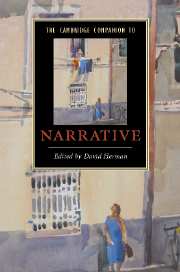6 - Dialogue
from Part II - Studying narrative fiction: a starter-kit
Published online by Cambridge University Press: 28 September 2007
Summary
Representing the voices of characters in a story is an effective way of enlivening a narrative. A vital aspect of how we remember and grow close to fictional characters is the way they speak: their accents and dialects place them geographically and socially, while their verbal idiosyncrasies and catchphrases help to make them memorable, even endearing. In an oral narrative, a change in intonation and/or pace may be sufficient to indicate to the listener where the narrator is quoting from another. The process is more complicated when it comes to written narratives, as the writer has to deal with the transition between one channel of communication and another. Nevertheless, the conventions for representing speech have become well established whether the context is a news story, a biography, or a novel, and readers rarely stop to question why speech is laid out as it is. As well as adding variety to a narrative, representing the speech of those who take part in a narrated event, or who are somehow qualified to comment on what takes place, may also contribute importantly to the authenticity and authority of the story, as we appear to be told what happened from “the horse's mouth.” It is difficult to imagine a narrative that does not include some kind of representation of speech, but the extent to which this is foregrounded varies considerably. The degree of directness of the report may also vary, but in this chapter I am concerned primarily with what has been termed direct or free direct speech, where the words of the characters appear to be reproduced verbatim and contribute significantly to the central action or plot.
- Type
- Chapter
- Information
- The Cambridge Companion to Narrative , pp. 80 - 93Publisher: Cambridge University PressPrint publication year: 2007
- 3
- Cited by

